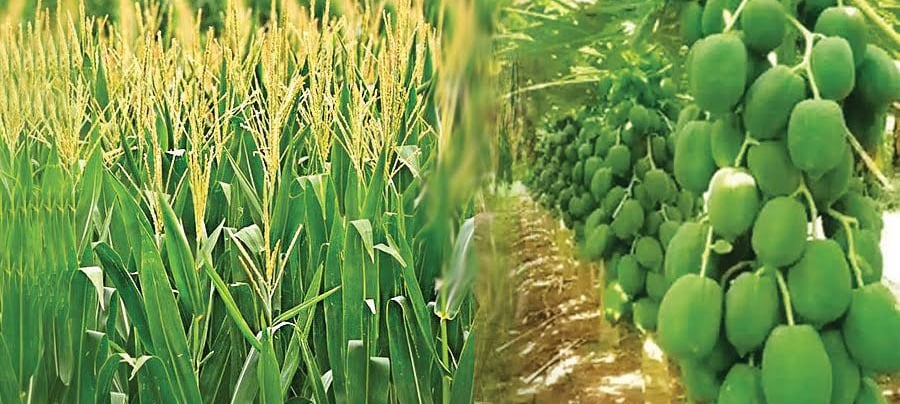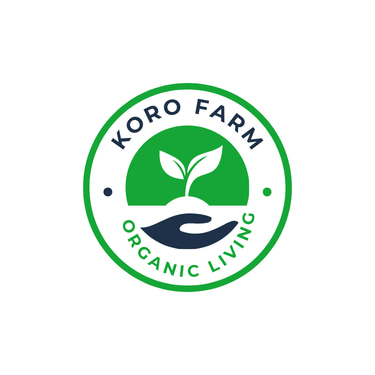Understanding Organic, GM, Hybrid, and Improved Seeds: What Every Farmer Should Know
In today’s agricultural world, farmers and gardeners have access to a wide variety of seeds, each with its own advantages and drawbacks. Understanding the differences between organic seeds, genetically modified (GM) seeds, hybrid seeds, and improved seeds can help you make the right choice for your farm or garden. Whether you prioritize sustainability, yield, or resilience, knowing the characteristics of these seeds is crucial for achieving your farming goals. Here’s a guide to help you understand each type of seed and its impact.
Alfred Okello
10/8/20244 min read
Understanding the Difference Between Original Seeds, GMO Seeds, Improved Seeds, and Hybrid Seeds: What’s Best for Your Farm?
In the world of agriculture, the type of seeds you plant plays a critical role in the health of your crops, soil, and long-term sustainability. There are several categories of seeds farmers can use, each with its unique benefits and downsides. Understanding the differences between original (traditional) seeds, GMO seeds, improved seeds, and hybrid seeds can help you make an informed decision for your farm or garden. In this blog, we will break down each type of seed, explore its advantages, and highlight potential downsides to consider.
1. Original Seeds (Heirloom or Traditional Seeds)
What Are They?
Original seeds, also known as heirloom or traditional seeds, are naturally occurring seeds passed down through generations. These seeds are open-pollinated, meaning they are pollinated by natural means like wind, insects, or birds, and they can be saved and replanted year after year.
Advantages:
Replantable: Farmers can save seeds from their harvest and replant them for the next season, ensuring a sustainable cycle.
Preservation of Biodiversity: Original seeds promote genetic diversity, which strengthens ecosystems and allows plants to naturally adapt to changing environments.
Chemical-Free: These seeds are not genetically altered or treated with chemicals, making them ideal for organic farming.
Downsides:
Lower Yields: In comparison to improved and hybrid seeds, original seeds often produce lower yields, which may be a concern for commercial farmers.
Vulnerability to Pests and Diseases: While original seeds are naturally resilient, they are sometimes more susceptible to modern pests and diseases if they haven't adapted to local conditions.
2. GMO Seeds (Genetically Modified Organisms)
What Are They?
GMO seeds are created through genetic engineering, where scientists modify a plant’s DNA to express specific traits, such as resistance to pests, herbicides, or harsh environmental conditions. These seeds are developed in laboratories and are patented by seed companies.
Advantages:
Higher Yields: GMO seeds are often engineered to produce higher yields, making them attractive to large-scale farmers.
Pest and Disease Resistance: GMO crops are designed to resist certain pests and diseases, reducing the need for chemical pesticides.
Adaptability: These seeds can be engineered to withstand drought, saline soils, and other challenging conditions.
Downsides:
Not Replantable: Many GMO seeds are protected by patents, meaning farmers cannot save seeds for replanting—they must buy new seeds each year.
Environmental Impact: GMO crops can lead to the overuse of herbicides and pesticides, contributing to soil degradation and the reduction of biodiversity.
Ethical Concerns: The genetic modification of seeds is a subject of ethical debate, particularly in relation to corporate control over the seed market and its potential effects on small farmers.
3. Improved Seeds
What Are They?
Improved seeds are developed through traditional breeding methods, selecting plants with desirable traits (like higher yield or disease resistance) over several generations. They are not genetically modified but may be crossbred to enhance certain characteristics.
Advantages:
Higher Yields: Improved seeds are bred to produce better yields than traditional seeds.
Resilience: These seeds are often more resistant to local pests, diseases, and environmental conditions.
Cost-Effective: Improved seeds can be replantable depending on the variety, which makes them more cost-effective than GMO seeds for some farmers.
Downsides:
Limited Biodiversity: The selection process focuses on specific traits, potentially reducing genetic diversity.
Input Dependency: Some improved seeds may require higher use of fertilizers or irrigation to achieve optimal results, which can be costly for small-scale farmers.
4. Hybrid Seeds
What Are They?
Hybrid seeds are created by cross-pollinating two different but related plant varieties to produce offspring with desired traits, such as increased vigoro, higher yield, or better disease resistance. Hybrid seeds are often labeled with "F1" to indicate they are the first generation of the cross.
Advantages:
High Yield and Uniformity: Hybrid seeds tend to produce higher yields and more uniform crops, which is beneficial for commercial farming.
Improved Traits: These seeds often have specific desirable traits, such as early maturity, disease resistance, or drought tolerance.
Market Appeal: The uniformity and appearance of hybrid crops often make them more attractive to buyers in markets.
Downsides:
Not Replantable: Hybrid seeds typically do not "breed true," meaning the seeds saved from hybrid plants will not produce the same quality of crop in the next generation. This forces farmers to buy new seeds each season.
Cost: Hybrid seeds are usually more expensive than traditional seeds, and the need to purchase them annually can be a financial burden for farmers.
Loss of Genetic Diversity: The focus on specific traits can lead to a narrowing of genetic diversity, which might reduce the crop’s long-term adaptability to changing environmental conditions.
The Big Picture: Which Seeds Are Right for You?
The type of seeds you choose to use depends on your farming goals, resources, and values. If you prioritize sustainability, biodiversity, and self-reliance, original seeds might be the best choice for you. However, if you are focused on maximizing yields and combating pests, GMO seeds or hybrid seeds may seem more appealing—though these come with environmental and ethical trade-offs.
Improved seeds may offer a middle ground, combining some benefits of modern breeding techniques while maintaining the option to replant. However, they too have downsides, such as the potential need for more inputs like fertilizers or irrigation.
Conclusion: Choose Wisely for the Future of Farming
Understanding the pros and cons of each type of seed is essential for making informed decisions about what’s best for your farm and the environment. By choosing seeds that align with sustainable farming practices, you can contribute to the long-term health of the land while producing healthy, abundant crops.
At Koro Farmstay, we advocate for the use of original, traditional seeds because they promote biodiversity, sustainability, and food security for future generations. We encourage farmers and growers to consider the long-term impacts of their choices and to prioritize methods that protect the environment and local communities.


Sustainability
Contact us
Sections
info@korofarmstay.life
© 2024. All rights reserved.
subscribe
